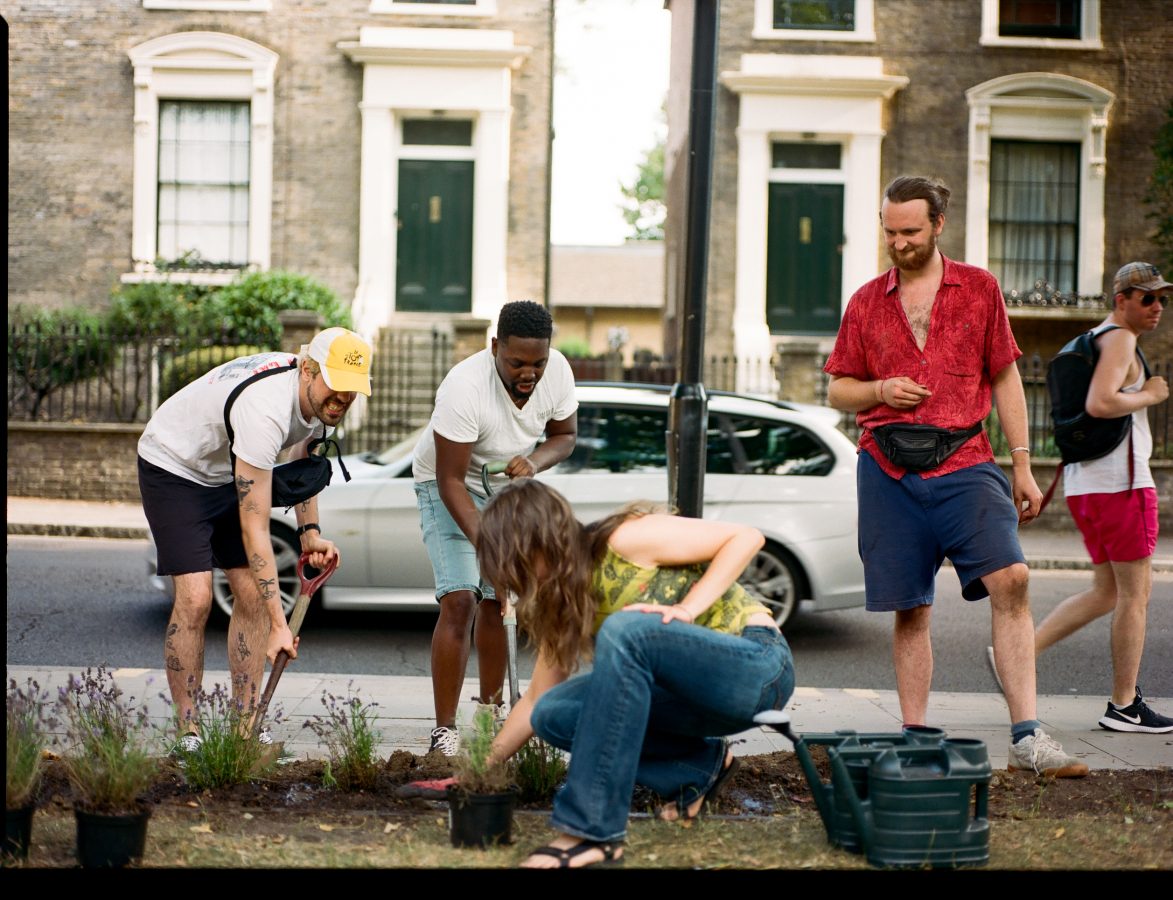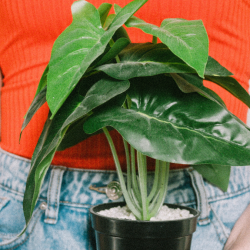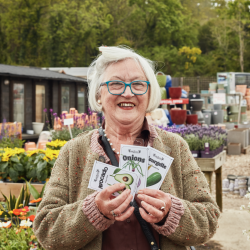Guerrilla gardening is back in business as a new generation reimagines this nature-based direct action to clap back against capitalism, climate change, and social inequality.
State of the grey-tion
Our world is getting greyer by the minute. Already, concrete outweighs every tree, bush, and shrub on Earth. As our species races towards total urbanisation, we’re eradicating nature — and our access to it — at an alarming rate. Either aptly or ironically, in step with this growing greyness is a growing understanding of our need for green. Thousands of new studies are confirming that frequent contact with verdant environments is essential for health, happiness, and social harmony — prompting calls to recognise it as a human right. These realities have converged to leave a sour taste in many urbanites’ smog-filled mouths.
As a collective, we’re craving nature more than ever.
Beautiful sights, beautiful smells, that should be normal. Not all this blight, all this trash, all this desolate, stinky, concrete, smog, heat.
Ron Finley (aka The Gangsta Gardener), Get Guerrilla Gardening
Despite this blossoming zeitgeist, civic ‘solutions’ consistently fail to deliver. Whether they’re funding vanity projects at the expense of equitable neighbourhood nature (I’m looking at you, Marble Arch Mound), planting fruit trees that produce no fruit (just hayfever inducing pollen), or, as Tayshan Hayden-Smith, the former footballer now known as ‘the Grenfell Guerrilla Gardener’, succinctly puts it: ‘Councils will pay ridiculous money to create a space that no one knows about and no one needs.’
The solution? Communities are taking matters into their own hands. Or rather, green fingers.

The rise of botanarchy
Guerrilla gardening is the act of planting in public places without permission. This vigilante form of urban greening involves individuals and communities reclaiming public space for public good, using plants to transform neglected corners of their neighbourhoods into bright pockets of food and flowers. The resulting gardens boost biodiversity; mitigate air pollution, heat, and flooding; produce fresh fruit, herbs, and vegetables; create beauty; impart a sense of belonging and agency; and make a political statement — often, all at once.
Guerrilla gardening isn’t a new concept, it’s an ancient one. Historically, the movement has swelled at times of civic unrest and financial crisis — notably in New York City in the 1970s and London in the 2000s. Today, amidst the rising cost of living, climate and ecological multi-crisis, and growing anti-authoritarian sentiment (against the police, the Tories, our new unelected monarch) guerrilla gardening is once again shooting up through the cracks in the paving. This new wave has been supercharged by TikTok, the social platform Gen Z are flocking to in droves, and a hotbed for anti-capitalist, pro-community, anarchic ideals.
When I started posting back in 2020 I was the first person on the platform to use the #guerrillagardening hashtag. Since then the channel has spring to life, with viral hits advocating for rewilding urban areas with native plant species.
Let’s grow
Guerrilla gardening is not a silver bullet to the crisis we find ourselves in. But it reminds us that we are not powerless. In creating guerrilla gardens, we plant the seeds of a happier, healthier, fairer future. We connect to the people and places around us, and gain hope and confidence in our agency in the process. If you want hands-on, feel-good direct action that helps people and planet — if you’re ready to rebel –— get guerrilla gardening.
GET GUERRILLA GARDENING: A Handbook for Planting in Public Places is your guide to becoming a green-fingered vigilante. This hands-on manual explains everything you need to know to start greening your streets.
Featured image: Francis Augusto































